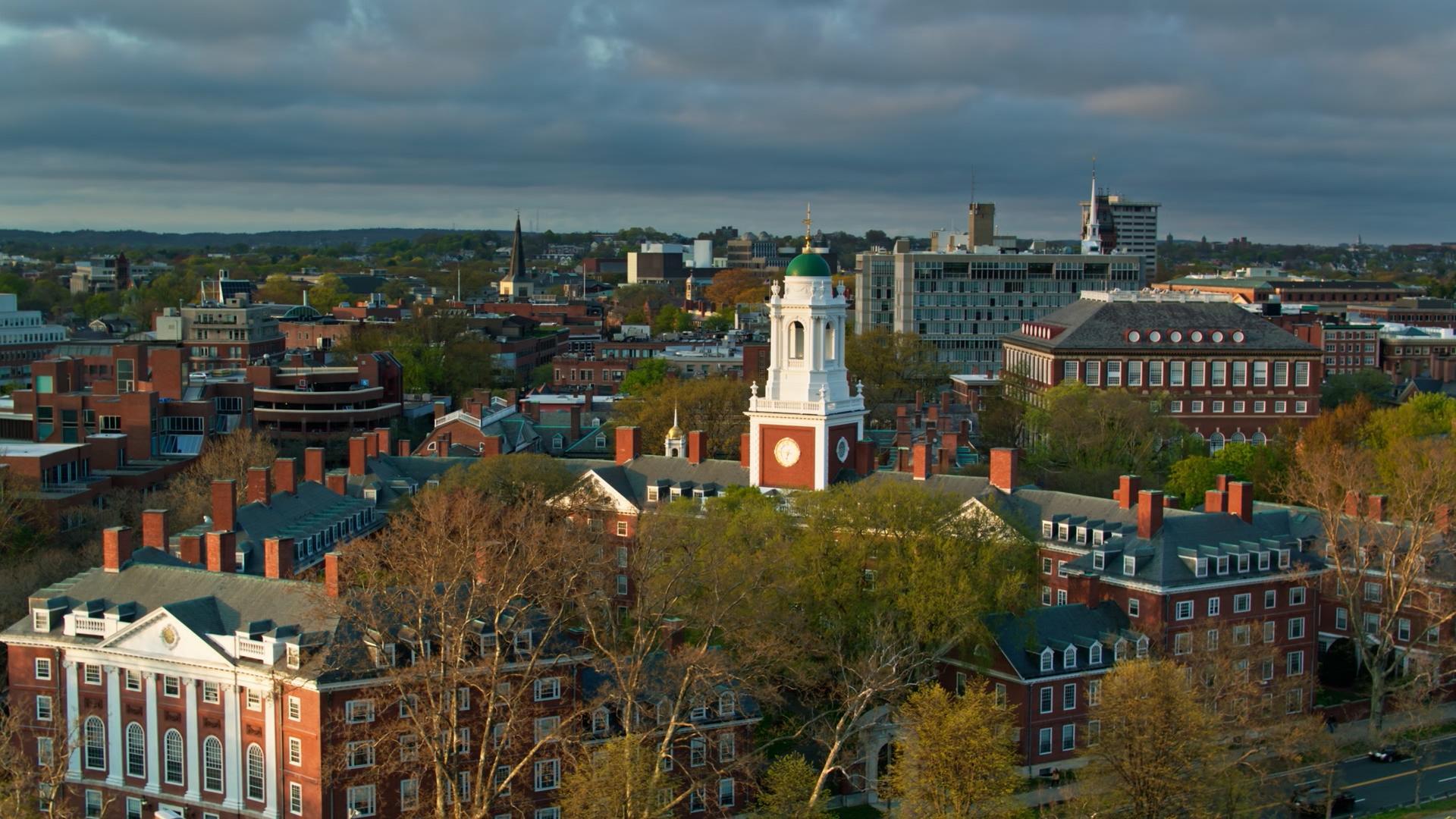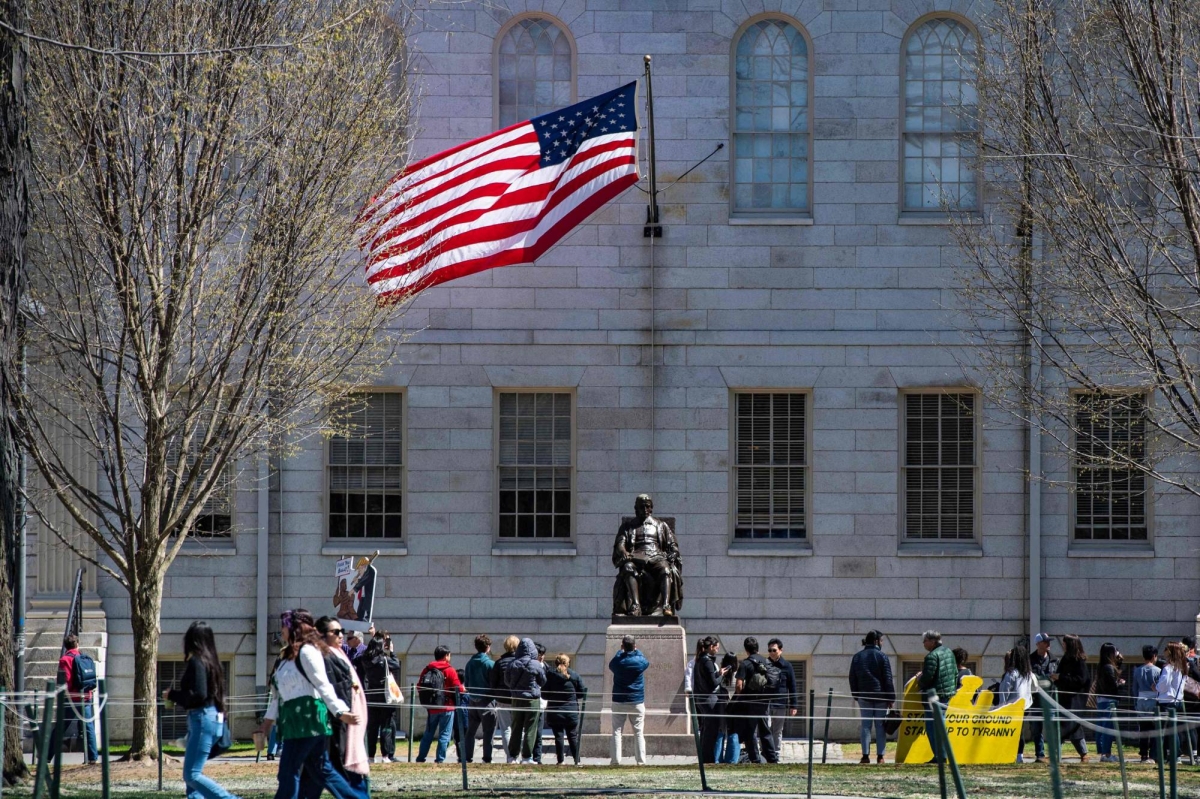
In a dramatic turn of events that could redefine the future of international student policies in the United States, President Donald Trump has indicated that a historic settlement with Harvard University is on the horizon. The settlement, which may be finalized within days, follows a tense legal battle between the Trump administration and the Ivy League school over the enrollment of international students.
With a federal judge stepping in to block Trump's executive orders aimed at revoking Harvard's ability to host foreign students, this landmark case is now set to bring about significant changes to the way universities across the country interact with the U.S. government on student visas.
The clash between Harvard University and the Trump administration intensified when the Department of Homeland Security (DHS) moved to revoke the university’s certification for the Student and Exchange Visitor Program (SEVP), a federal database that monitors international student visa applications. Without access to this system, Harvard would have been unable to enroll international students, a move that would have disrupted the education of thousands of scholars from around the world.
The revocation of this program was part of the Trump administration’s broader strategy to impose stricter immigration controls, particularly in higher education institutions.

Harvard University, however, quickly pushed back. In response to the DHS’s decision, Harvard filed a lawsuit against the Department, arguing that the revocation was an act of retaliation for the university’s stance on several political issues, including its refusal to follow some of the administration’s conservative policies.
Harvard’s legal team contended that the actions taken by the Trump administration violated the university’s constitutional rights, particularly its First Amendment rights to academic freedom, and the Due Process Clause.
In an unexpected move, U.S. District Judge Allison Burroughs ruled in favor of Harvard, issuing a preliminary injunction that prevents the government from cutting off the university’s access to the SEVP system. This decision allows Harvard to continue enrolling international students as the case moves forward.
This ruling has been hailed as a major legal victory for the university, and it places a significant roadblock in the administration’s efforts to curb foreign student enrollment, especially at prestigious universities like Harvard.
In a swift reaction to the judge’s decision, President Trump took to Truth Social to announce that his administration had been in close negotiations with Harvard and suggested that a deal between the two parties could be imminent.
“We have been working closely with Harvard, and it is very possible that a Deal will be announced over the next week or so,” Trump wrote.
Trump further emphasized the importance of the negotiations, noting that if a settlement were reached, it would be "mindbogglingly historic" and beneficial to the country. He praised Harvard’s leadership for acting "extremely appropriately" during the negotiations, acknowledging their commitment to doing "what is right."
Despite his optimistic tone, the president did not offer further details about the specifics of the deal, leaving many to wonder what terms would be agreed upon in this potentially groundbreaking agreement.
The idea of a deal being reached is notable because it signals a shift in the tone of the confrontation. While the Trump administration initially sought to punish Harvard for what it perceived as ideological defiance, the prospect of a negotiated settlement suggests that the administration may be willing to back down from its previous stance in exchange for certain compromises or policy changes.
This development could be indicative of a broader trend in which President Trump’s administration is seeking to recalibrate its relationship with higher education institutions that have been critical of its policies, particularly in the areas of immigration and diversity.
The legal battle between Harvard and the Trump administration is part of a much larger national debate over the future of international students in the United States. Foreign students represent a significant portion of the student population at many of the nation's top universities, including Harvard.
According to reports, approximately one in four students at Harvard comes from outside the United States. This demographic is vital not only to the academic diversity of these institutions but also to their financial health, as international students often pay higher tuition fees than their domestic counterparts.
However, President Trump has long been critical of what he perceives as the growing influence of foreign nationals within American institutions. In previous statements, he suggested that universities should cap the number of international students enrolled and called for more transparency regarding the backgrounds of foreign students.
Additionally, Secretary of State Marco Rubio ordered additional vetting procedures for anyone traveling to Harvard, including students, staff, faculty, and guest speakers. These actions are part of a broader strategy to tighten the U.S. visa system, particularly for students and individuals coming from countries deemed to be high-risk.

The Trump administration has framed its stance on international students as a matter of national security, arguing that universities should be more proactive in screening foreign students to ensure they are not linked to extremist ideologies or hostile governments. This rhetoric was particularly evident in the administration’s push for "additional vetting" of social media accounts for visa applicants, an action that has raised concerns about privacy and potential discrimination.
In response to these moves, many academic institutions, including Harvard, have vocally opposed the administration's restrictions. Critics argue that these measures unfairly target international students, particularly those from Muslim-majority countries and regions experiencing political instability.
They contend that the restrictions would harm U.S. universities by reducing the diversity and intellectual capital that foreign students bring to campuses, potentially undermining the country's status as a global leader in higher education.
While the immediate ruling from Judge Burroughs represents a win for Harvard, the future of international student policies remains uncertain. The legal process is far from over, and Harvard’s case against the Trump administration will likely continue to evolve.
The university has made it clear that it will continue to defend its rights and the rights of its students, asserting that the actions of the Trump administration are part of a broader pattern of political retaliation against academic institutions that refuse to comply with the administration’s directives.
If the settlement that President Trump hinted at does come to fruition, it could mark a new chapter in U.S. immigration policy, particularly in the realm of higher education. Such an agreement could set a precedent for how future administrations negotiate with universities over issues of academic freedom, student rights, and national security concerns.
Depending on the terms, it could also serve as a model for resolving future disputes between the government and academic institutions.
This dispute between Harvard and the Trump administration reflects a larger trend in the relationship between government and academia. Over the past few years, the Trump administration has increasingly clashed with universities, particularly those in the Ivy League, over issues related to political correctness, diversity, and free speech.
The administration’s efforts to impose more stringent immigration policies and force universities to comply with conservative values have led to widespread protests and legal challenges from academic institutions.

As President Trump suggests the possibility of a historic settlement with Harvard, it remains to be seen whether other universities will follow suit or continue to challenge the administration’s policies in court. The outcome of this case could have long-term ramifications for both international student enrollment in U.S. universities and the broader debate over the role of higher education in shaping national policy.
As the legal battle between Harvard and the Trump administration continues to unfold, the possibility of a settlement looms large. A deal between the two parties could reshape the future of international student enrollment in the United States and set a precedent for future negotiations between universities and the federal government.
While the specifics of any settlement remain unclear, one thing is certain: this case represents a pivotal moment in the ongoing debate over immigration, academic freedom, and the role of universities in shaping the future of American society.
For now, Harvard continues to defend its right to enroll international students, and the Trump administration must decide whether a negotiated settlement is the best path forward or if the battle will continue. Regardless of the outcome, this legal saga is set to leave a lasting impact on the U.S. educational system and the future of international collaboration in higher learning.






